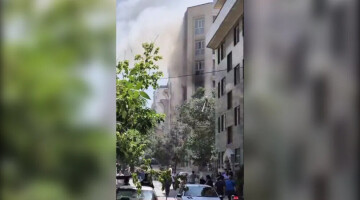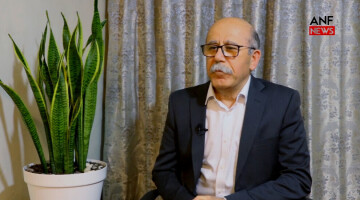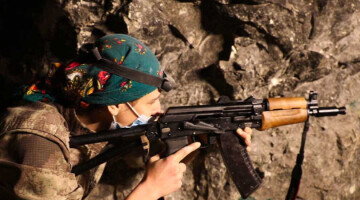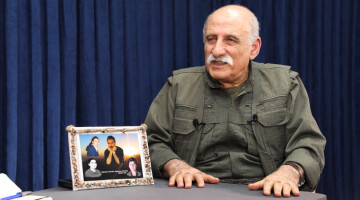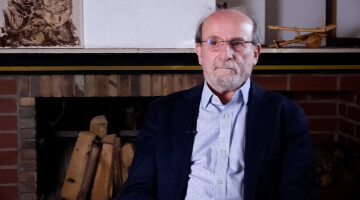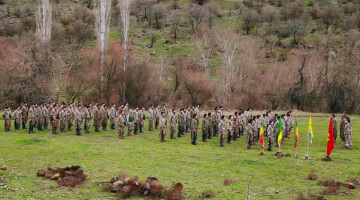This weekend there will be an important meeting in Colombia in which the leadership of the FARC party (People’s Alternative Revolutionary Force) and the delegates of the Territorial Spaces for Training and Reincorporation Spaces (ETCR), will analyze the progress and difficulties of the reincorporation process, in order to establish guidelines for acting towards the future.
The former FARC guerrillas have been living in very precarious conditions in designated areas called Territorial Spaces for Training and Reincorporation Spaces, since the signing of the Final Peace Agreement between the FARC and the Government led by President Juan Manuel Santos (24 November 2016).
These areas were the former guerrillas are concentrated, were formerly the old rural areas conceived for the bilateral cessation of fires and the abandonment of weapons. Once this process was completed, suitable places were required to enable the collective reincorporation agreed upon in the Final Agreement. At first, 26 of these spaces were conceived. The practice though led to the establishment of a few more.
The initial ETCRs are: 5 in Antioquia, 2 in Caquetá, 4 in Cauca, 2 in Guaviare, 3 in Meta, 2 in Tolima, and 1 each in Putumayo, Norte de Santander, Nariño, Guajira, Cesar, Córdoba, Chocó and Arauca. The number of new collective groups generated by the process has been increasing.
It is expected that at this meeting for balance will attend delegations from all of the ETCR and collective groups, which will allow an accurate radiography of the true state of the implementation of the Final Agreement, especially in terms of reincorporation.
It will be the first time, after the founding Congress of the FARC party (her in August 2016) that such a number of former guerrillas gather to discuss their fate.
Clearly there is already a quite good knowledge of the situation in those places. Everywhere the former guerrillas are going through a lot of work in order to get on the day by day, and this is a fact.
As human beings, they require basic services such as water, electricity, sewerage, communications, as well as basic needs such as health, education and food.
In addition, in order to have a proper picture of the situation, we must add the real possibility of working to earn a living lawfully. In all these matters the deficiency is enormous and this will be certainly made clear in the reports coming from each space. The same former guerrillas are cleared about this, especially after it has already officially been announced that food support will end in June, while the already poor health care given will be cut even further.
But one of the worst aspect relates to projects meant to have been started to provide employment opportunities to the former guerrilla.
Gabriel Angel, a former guerrilla himself and known for being “the writer of the FARC”, puts it bluntly: “No productive project has been launched”.
Yet, despite the difficulties, a good part of the old guerrilla militancy remains united, still with expectations of making the dream of social, economic and political reincorporation true.
Gabriel Angel underlines that “it is our iron will that contains the seed of what will be the new Colombia”.
The Colombian State is committed by the Final Agreement to pay 703,000 pesos (around 200 euro) per month to each former guerrilla for two years (eighth months have already elapsed). In addition to this basic salary (which actually is 80% of the minimum wage) the State also gave each former guerrilla two million pesos (some 590 euro) as a one time grant.
When the two years end, former guerrillas will be on their own. Which is why it is of crucial importance to lie the foundation for serious and stable economic production projects. Unfortunately the delay on this is accumulating.
The poor progress in this matter will be dealt with at this weekend meeting. “But not - says Gabriel Angel - to cry and consider ourselves defeated”.
Indeed, the State, and particularly the government of Juan Manuel Santos, have shown little interest in fulfilling what was signed in Havana and Bogotá.
The FARC indeed have fulfilled each of point of the Final Peace Agreement.
But undoubtedly some of the former guerrillas have deserted the peace process, opting to remain in arms and call others to war.
The situation as to respect of human rights is concerned remains no doubt very worrying and paramilitary groups are as active as ever.
In the report on the human rights situation presented by the UN, this week, and covering the period 1 January - 31 December 2017, are highlighted the number of attacks against human rights defenders, social leaders, as well as former guerrillas, their families, citizens protesting for their rights. The attacks have been 441, of these 121 were killings and 84 of the people murdered were human rights defenders.
To this we have to add the killings of 35 social leaders and human rights defenders in what goes of 2018. The latest 2 social leaders (a woman and a man) were killed last week.

